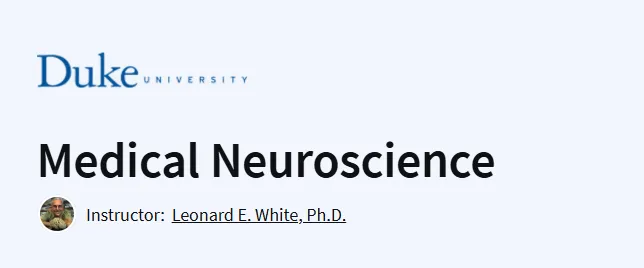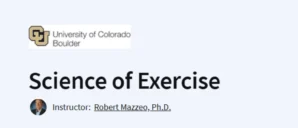What you will learn in Medical Neuroscience Course
- Comprehensive neuroanatomy of CNS/PNS
- Sensory and motor system pathways
- Neural basis of cognition/behavior
- Clinical correlations of neurological disorders
- Neuropharmacology fundamentals
- Diagnostic approaches in neurology
- Cutting-edge neuroscience research
Program Overview
Neuroanatomy Foundations
⏱️ 2 weeks
- Covers brain/spinal cord gross anatomy, ventricular system, and blood supply.
- Includes 3D dissection modules and clinical stroke cases.
Neural Signaling
⏱️2 weeks
- Examines action potentials, synaptic transmission, and neurotransmitter systems.
- Features epilepsy case studies and EEG interpretation.
Sensory Systems
⏱️ 2 weeks
- Detailed pathways for vision, audition, and somatosensation.
- Includes optic neuritis and hearing loss case analyses.
Motor Control
⏱️ 2 weeks
- Covers pyramidal/extrapyramidal systems, basal ganglia circuits, and cerebellar coordination.
- Parkinson’s disease deep dive.
Higher Functions
⏱️ 2 weeks
- Explores memory, language, and emotion neurobiology.
- Alzheimer’s and aphasia case discussions.
Get certificate
Job Outlook
- Career impact: Essential for neurology/neurosurgery
- Salary potential: 250K500K for neurologists
- Professional value: Critical for psychiatry, PM&R
- Certification benefit: Strong USMLE Step 1 prep
Specification: Medical Neuroscience
|
FAQs
- You’ll explore the comprehensive neuroanatomy of both the central and peripheral nervous systems, including the brain, spinal cord, ventricles, and blood supply.
- You’ll gain deep understanding of sensory and motor pathways, through modules on sensory systems (vision, hearing, touch) and motor control networks.
- The course covers the neural bases of behavior and cognition, such as language, memory, emotion, and includes clinical case studies like Alzheimer’s and aphasia.
- You’ll learn neuropharmacology fundamentals and diagnostic approaches in neurology, enhancing both biological knowledge and clinical context.
- The content reflects medical school–caliber rigor, with neuroimaging cases, animated pathway visuals, and real stroke, epilepsy, and Parkinson’s disease scenarios.
- The course is divided into six modules, with each module covering major topics like neuroanatomy, signaling, sensory systems, motor control, and higher functions.
- It’s designed to run over 12 weeks, with each module spanning approximately 2 weeks and a final week set aside for a comprehensive exam.
- Estimated total video content is around 71 hours, and the expected workload is about 4 hours per week.
- The learning format includes self-paced, online delivery, allowing flexible study on desktop or mobile with lifetime access.
- However, it’s quite demanding—students report it may require 10+ hours per week if taken in full depth.
- Yes—you should have prior knowledge of cell and molecular biology, general anatomy, and physiology, as the course builds on these foundations.
- Though labeled as “Beginner” on some platforms, this is in reference to neurological studies, not general prior knowledge.
- The workload and depth of clinical correlations make it more suitable for learners with a science or pre-med background.
- Expect some challenging content, including clinical cases and detailed anatomical studies, which may be tough without foundational science knowledge.
- There’s no live faculty interaction, so you’ll need to manage challenging topics independently.
- Yes—you can earn a verified Certificate of Completion which is shareable, such as on LinkedIn or your résumé.
- If you enroll via audit, you can access most content for free, but certificate eligibility requires purchasing the Certificate experience.
- Completing the course does not earn you academic credit or a Duke University transcript—it’s non-credit, but still valuable for credentials.
- The certificate reflects a strong level of neuroanatomy knowledge and can support prep for exams like MCAT or USMLE Step 1.
- Financial aid may be available if cost is a barrier.
- It’s ideal for pre-med students, aspiring physicians, or early-career researchers seeking deeper understanding of neurobiology.
- Highly relevant for those preparing for medical licensing or entrance exams like the MCAT or USMLE Step 1.
- Professionals in neurology, psychiatry, physical medicine, rehabilitation, and related fields will find it clinically valuable.
- It offers a solid foundation in clinical neuroanatomy and neurophysiology, supporting future specialization.
- For non-medical learners, it’s a challenging but rewarding deep dive—be prepared for a steep learning curve if without a science background.





